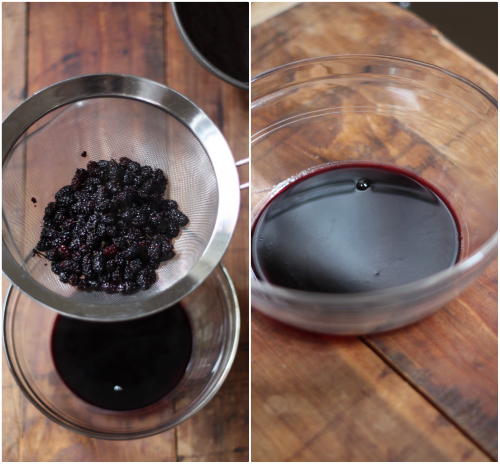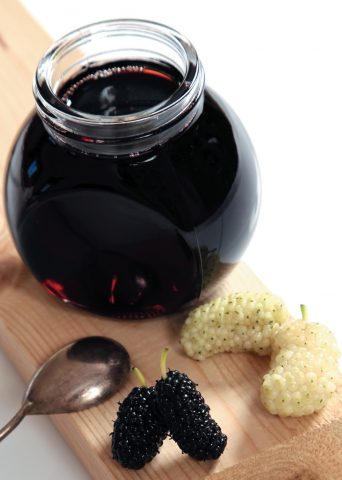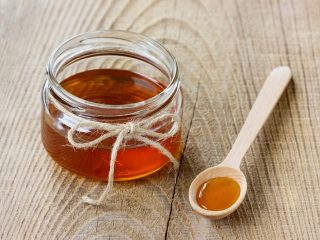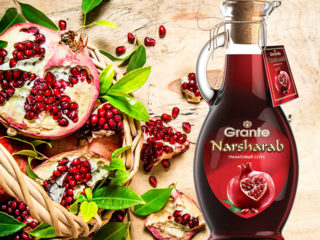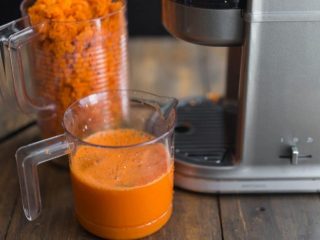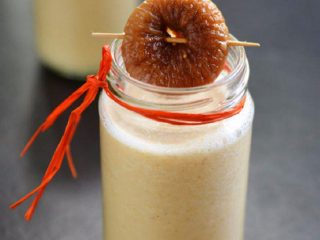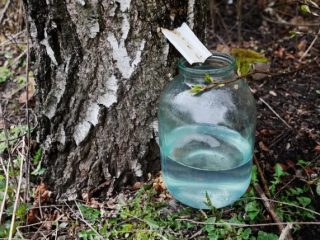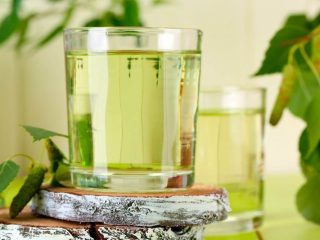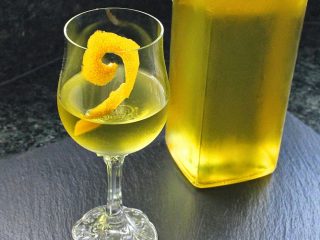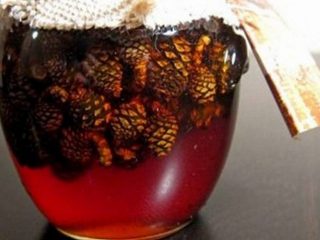Content
- 1 Medicinal properties of mulberry doshab
- 2 What does mulberry doshab help with?
- 3 How to make mulberry syrup
- 4 Instructions for using mulberry doshab for cough
- 5 Use of mulberry doshab for other diseases
- 6 Contraindications to the use of mulberry syrup
- 7 Terms and conditions of storage
- 8 Reviews of mulberry doshab
- 9 Conclusion
The fruits of the mulberry tree (mulberry) can be consumed in different ways. They are used to make jam, tinctures, and added to meat, salads, sweet desserts, halva, and churchkhela. Some people prefer to prepare a healing drink from the berries – mulberry doshab. It is believed that this syrup is a storehouse of vitamins and cures people from a variety of diseases.
Medicinal properties of mulberry doshab
Since mulberries are a delicate and perishable product, they are not transported over long distances, but are immediately processed for further sale. At home they dry and freeze. In production, juice or syrup is made from mulberry fruits, which in the Oriental is called doshab or bekmez. Doshab is a very popular drink and traditional medicine in the Middle East. It is used not only in Asia, but also in Europe.
Mulberry doshab consists of natural ingredients, and this is its great value for the body. The contents of 100 g of product are presented in the table.
Calorie content, kcal | 260 |
B (proteins, g) | 0,32 |
F (fat, g) | 0,24 |
U (carbohydrates, g) | 65 |
The beneficial properties of mulberry doshab are due to the presence in it of a whole complex of vitamins and minerals and other important substances:
- natural sugars (fructose, glucose);
- organic acids (malic, citric);
- carotene;
- pectins;
- vitamins (B, C);
- minerals (iron, calcium).
Mulberry fruits contain a record amount of potassium among other berries. Thanks to this substance and some others, doshab is extremely beneficial for the heart. It is used for the following types of diseases and conditions:
- aching pain in the chest, accompanied by shortness of breath (in this case, take the composition for 3 weeks);
- dystrophy of the heart muscle;
- tachycardia of various etiologies;
- congenital and acquired heart disease;
- hypertension;
- atherosclerosis.
Mulberry doshab is rich in vitamin C and helps very well against colds and infections, strengthens the immune system, relieves fever, increases sweating, and saturates the body with useful substances during the cold winter period. It is an excellent alternative to raspberry jam and honey. During a cold, a spoonful of mulberry medicine relieves a sore throat. You can ease a runny nose by dropping an aqueous solution of doshab into the nasal passages.
The medicine affects not only the upper but also the lower respiratory tract. With its help you can get rid of a dry, debilitating cough, soften your throat, and also ease the course of bronchial asthma. During the cold period, mulberry doshab will serve as an excellent prophylactic if you take it in the morning on an empty stomach, a spoonful, dissolved in a cup of warm water.
Mulberry fruits contain a substance called resveratrol, which has proven itself to be a strong antioxidant. It is one of the most potent polyphenols and successfully:
- fights inflammatory processes in the body;
- increases cell sensitivity to insulin;
- reduces the risk of developing complications in diabetes mellitus;
- resists the action of free radicals;
- improves blood circulation;
- suppresses tumor growth;
- relieves joint pain;
- protects cartilage tissue from damage;
- slows down aging;
- increases mental performance.
Phosphorus contained in mulberry doshab is useful for people engaged in mental work. High riboflavin (B2) content lowers blood sugar levels in type 2 diabetes. Taking doshab restores men's health, improves erection, and helps get rid of prostatitis.
What does mulberry doshab help with?
Mulberry doshab is a rich source of energy, very useful for pregnant women and diabetics, as it is prepared completely without sugar. The drink is rich in natural sugars: glucose and fructose, which are absorbed without the participation of insulin and therefore do not harm patients with diabetes. Contains many vitamins and iron, which is many times superior to honey.
Doshab can replace many medications and helps with the following diseases:
- hypochromic anemia associated with hypoacid gastritis;
- gastrointestinal ulcer;
- acute enterocolitis;
- scarlet fever;
- dysbacteriosis;
- dysentery;
- hives;
- heart disease;
- birth and other bleeding;
- biliary dyskinesia of the hyperkinetic type;
- constipation
Mulberry doshab cleanses the blood, liver, heals the entire body, including improving mental activity, memory, and calms the nervous system.
How to make mulberry syrup
The benefits and harms of mulberry syrup largely depend on compliance with the preparation technology. It is very important here that the mulberry fruits are ripe; there is no need to wash the berries.Pour them into a wide and deep bowl, knead them with your hands until they become mushy. Then pour the whole mass into a saucepan and cook for half an hour. The resulting pulp is passed through a sieve and juice is obtained, which must be boiled for another 15 hours. As a result, you need to get the consistency of thick jam.
Instructions for using mulberry doshab for cough
Mulberry syrup helps with coughs, as it has the property of thinning and removing mucus from the respiratory tract. It is used to treat both adults and young patients. Mulberry syrup especially helps cough children, who love it for its pleasant sweet taste.
How to take mulberry doshab for children
For a cold, dilute one tablespoon of medicine (tablespoon) in half a cup of warm milk, then add hot milk. This is done so that the doshab does not curdle due to exposure to high temperature. Give the medicine three times a day, and when the child gets better - twice. Very young children, just over 1 year old, should limit themselves to one spoonful of mulberry doshab per day.
How to take mulberry syrup for adults
For adults, the amount of product should be doubled, and sometimes tripled. Take after mixing the doshab in a cup with warm liquid, milk, tea or water. The first dose should be taken in the morning on an empty stomach. This way the benefits of mulberry syrup will be more fully realized.
Use of mulberry doshab for other diseases
To cleanse the liver and bile ducts, dissolve a spoonful of doshab in a cup of warm water, drink at a time and lie down with a heating pad under your right side. It is recommended to take doshab for chronic swelling caused by poor heart or kidney function. Mulberry has all the necessary properties for this:
- diuretic;
- sweatshop;
- anti-inflammatory.
Mulberry doshab has pronounced antiseptic and bactericidal properties. It is used to disinfect the oral cavity for periodontal disease, stomatitis, and throat diseases. Just dissolve one tablespoon in a cup of warm water to make a rinse solution. Mulberry syrup should be used at least four times a day.
Contraindications to the use of mulberry syrup
Mulberry doshab has not only medicinal properties, but also contraindications. There are practically no restrictions on its use, but it should be used with caution during pregnancy, and should not be used in the diet of children under 1 year of age, so as not to provoke an allergic reaction. Mulberry doshab should not be used simultaneously with other berry syrups. This can put a lot of stress on the gastrointestinal tract and cause disruption in their functioning.
Terms and conditions of storage
Mulberry doshab can be stored for about two years - this is usually indicated on the label of syrup made in industrial conditions. It is prepared without preservatives, so after opening the shelf life is significantly reduced. Provided that the bottle of syrup is kept in the refrigerator, the shelf life can last up to six months.
Reviews of mulberry doshab
Conclusion
Mulberry doshab is an excellent vitamin and prophylactic remedy that can support the body and protect it from many diseases. Suitable for both adults and children, it can be used as a sauce for various dishes, a food additive or a natural sweetener.

